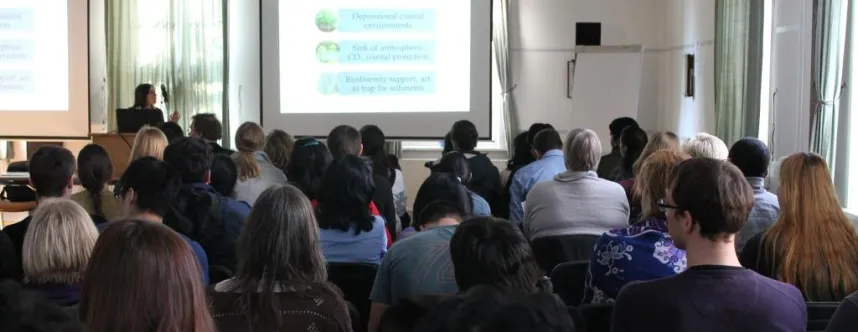MoLife Research Seminar: Prof. Dr. Thorbald van Hall
MoLife Research Seminar presented by:
Prof. Dr. Thorbald van Hall, Leiden University Medical Center, The Netherlands
Title of the talk:
T cell immunity to cancer: hide and seek
The intricate interplay between cancer and the immune system has been subject of great controversy. At the one hand, chronic inflammations increase the risk of cancer development, but at the same time, convincing evidence shows that our immune system keeps emerging neoplastic lesions in check. This latter immune surveillance concept has best been described in the postulation of ‘immunoediting’, in which the immune system initially successfully controls the small transformed clumps of cells (elimination phase), followed by a phase of continuous battle (equilibrium phase) and an eventual outgrowth of the immune-sculpted escape variants (escape phase). Cancers indeed frequently evade immune-recognition by shut down of tumour antigens on their cell surface. Loss of HLA class I is an effective way to prevent destruction by cytotoxic T cells. HLA class I molecules present antigenic (tumour) peptides from intracellular proteins that are degraded and then chaperoned to the peptide loading compartment. Therefore, limited peptide supply due to defects in the peptide transporter TAP represents an efficient escape mechanism.
We have reported on a novel category of tumour antigens, which do not depend this peptide transporter for their display at the cell surface. These novel antigens did not derive from tumour antigens, but non-mutated self proteins and were called TEIPP for ‘T cell epitopes associated with impaired peptide processing’. TEIPP-directed T cells are efficiently selected by the thymus, although the self proteins are expressed there, since the processed peptide-epitopes are selectively presented in immune-escaped tumour cells. We furthermore demonstrate that, in contrast to T cells specific for conventional tumor antigens, the TEIPP T cells remain naïve in mice bearing immune-escaped tumors. This unaffected state was caused by low levels of MHC-I on the tumors and the failure to cross-present low levels of antigenic protein by host APCs. Importantly, increased levels of MHC-I, antigen or co-stimulation resulted in potent activation of TEIPP-specific T cells via direct presentation. Genetic knockdown by CRISPR/Cas9 technology of the relevant MHC-I allele in tumor cells abrogated T cell activation. Priming of TEIPP-specific T cells induced a strong homing of these T cells to MHC-Ilow tumors and subsequently protected mice against outgrowth of their MHC-Ilow tumor. Thus, our data suggest that patients with immune-escaped tumors harbour a still naïve repertoire of TEIPP-directed T cells, which can readily be exploited for immunotherapeutic strategies.
all are welcome!
Further information:
Prof. Dr. Sebastian Springer, Professor of Biochemistry and Cell Biology - Email: s.springer@jacobs-university.de - Tel: +49 421 200-3243 - Link to Homepage: http://www.jacobs-university.de/ses/sspringer
